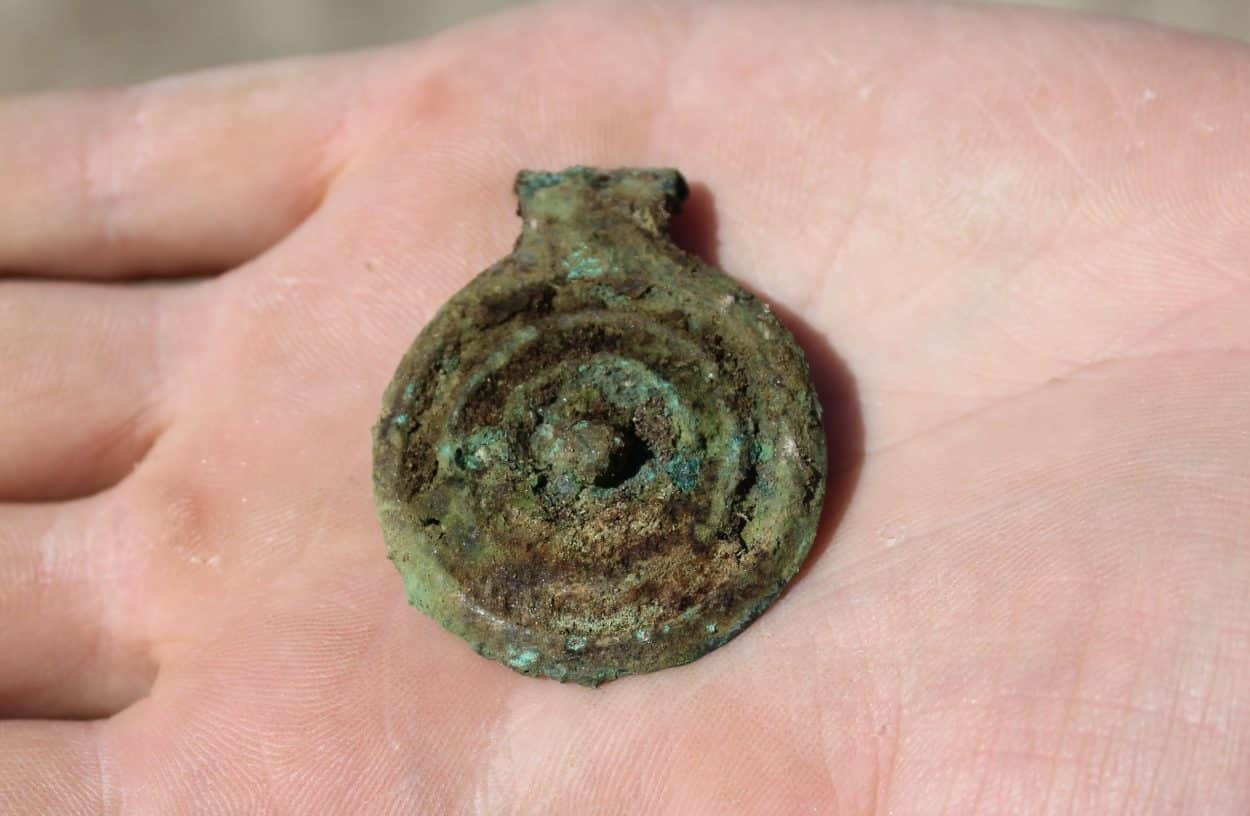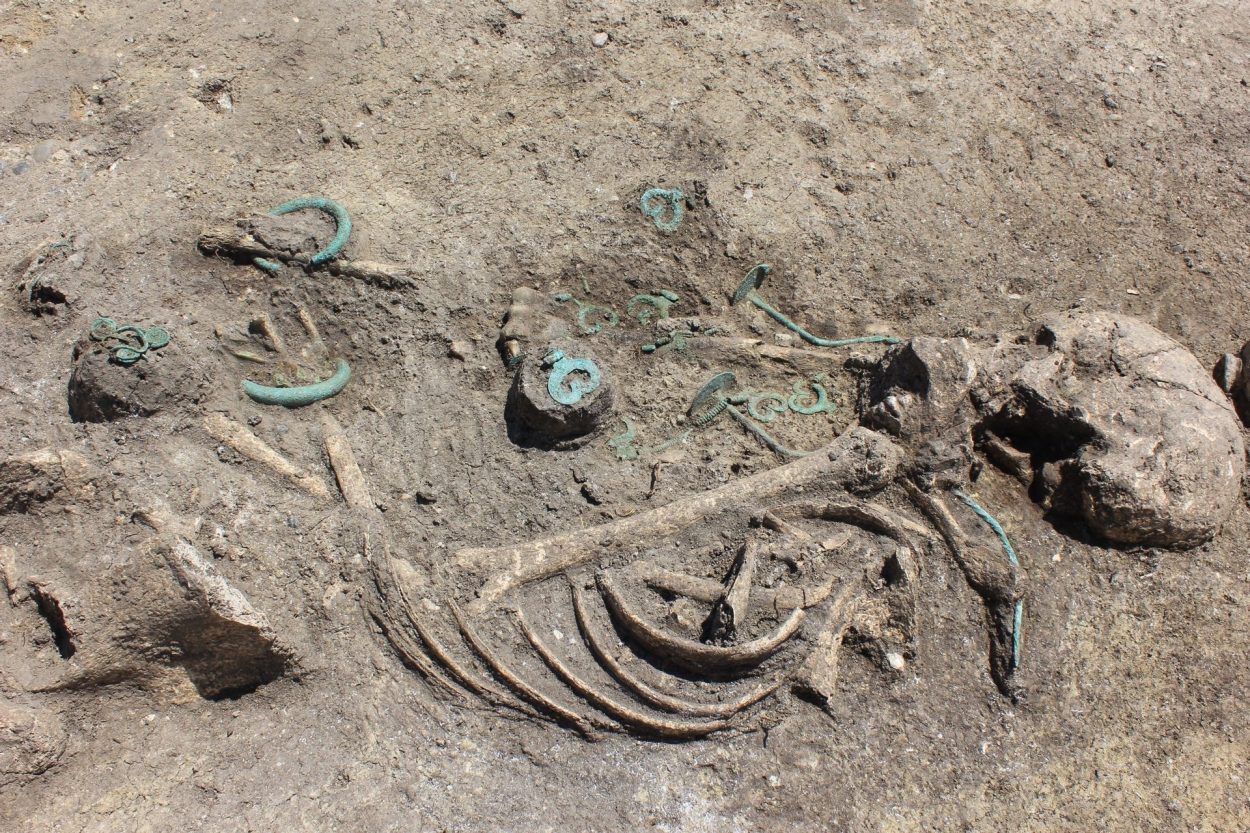Archaeologists from the Szent István Király Museum have excavated Bronze Age treasures in a cemetery near the town of Mány in Hungary.
Excavations were in preparation for the construction of the M100 motorway, revealing a cemetery containing a small number of high-status burials that date from the Bronze Age.
The team found 8 burials, with one notable burial containing the remains of a young woman no older than 20 years of age.
She was buried with 38 ornate gold and bronze decorative objects, such as gold rings, torcs, spiral armlets, a gold hair ring, in addition to several small ceramic pots.
The researchers believe that the woman was buried with rings on each of her fingers, indicating that she was a wealthy individual who held a high social status in her community.
The items also represents an advanced knowledge of metal working, revealing new insights into the clothing and accessories worn by the Bronze Age inhabitants of the region thousands of years ago.

Upon identifying the site, a metal detecting survey conducted by a local archaeology group was used to mark out and record the location of the metallic objects, but the team believes that there are many more objects yet waiting to be discovered.
The team also found traces of a Bronze Age settlement and settlements from the Árpád period that date from the 9th and 10th century AD.
Krisztián Pokrovenszki, director of the Szent István Király Museum said: “We can never know what is hidden underground. The technology is there so that we can identify certain things, but such finds are only brought to the surface during archaeological excavations or during a metal detecting survey. If there was no archaeological excavations prior to major investments, then surely many such objects would be destroyed or never come to light.”
Header Image Credit : Szent István Király Museum





